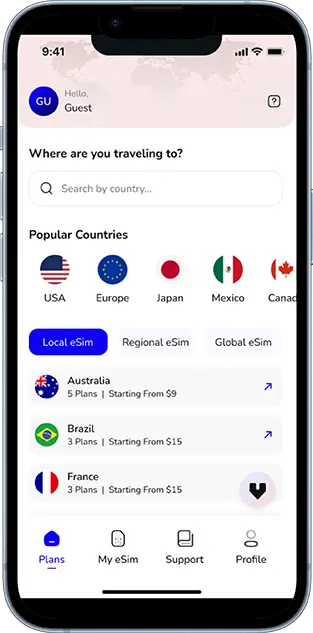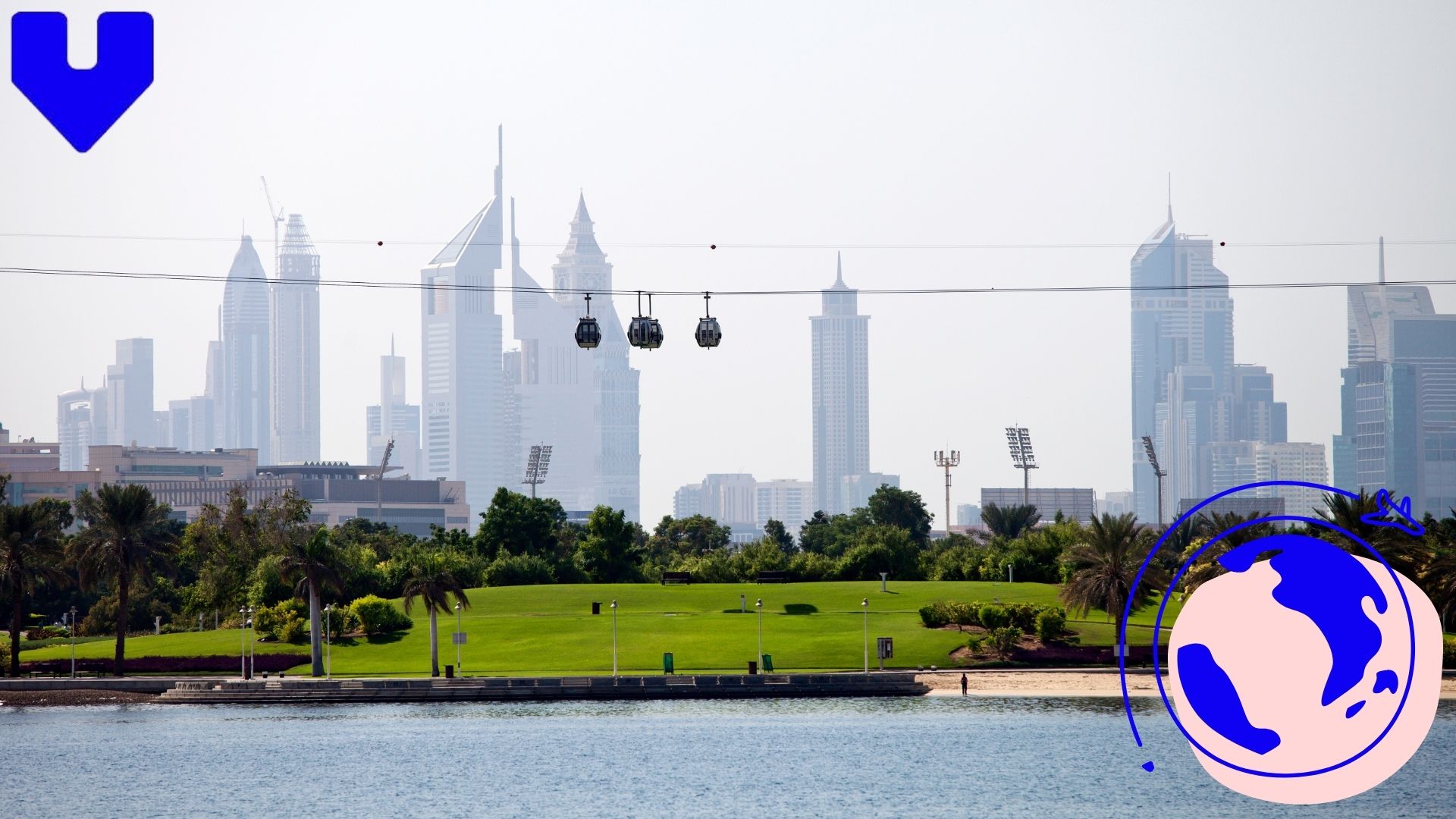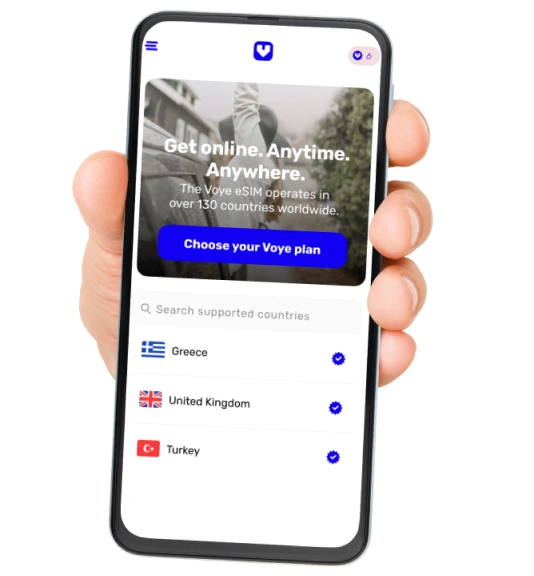Note that iPhone devices from Mainland China aren’t eSIM compatible. Also iPhone devices from Hong Kong and Macao aren’t compatible (except for iPhone 13 Mini, iPhone 12 Mini, iPhone SE 2020 and iPhone XS)
Preparing for a short trip to Dubai in 2026 is exciting, but it also requires thoughtful planning. The city continues to evolve with new attractions, updated regulations, and expanding tourism services, making it even more important to organize your essentials before you arrive. Whether you are visiting for leisure, a quick getaway, or a stopover, understanding key requirements ahead of time ensures a smooth beginning to your trip. This Dubai guide outlines everything you should prepare before flying, helping you avoid delays, confusion, and unnecessary stress.
This updated 2026 Dubai guide covers the most important pre-travel essentials: visa rules based on nationality, the best time to visit, what to book in advance, how much money you need, and the legal guidelines first-time visitors often overlook. These practical areas form the foundation of a stress-free arrival in the UAE. As modern travel becomes more digital in 2026, having your basics prepared early and securing reliable connectivity through something like an eSIM can make your short trip significantly easier from the moment you land.
Visa Requirements for Traveling to Dubai
One of the first concerns travelers have is whether they need a visa to enter Dubai. The UAE maintains a visitor-friendly system, but rules vary depending on nationality. Many travelers in 2026 continue to enjoy visa-free entry or visa-on-arrival, including citizens of the United States, the United Kingdom, most European Union countries, and several Asian and South American nations. These visitors can simply present their passport on arrival and receive a short-stay entry stamp without any prior application.
If your nationality is not listed under the visa-free or visa-on-arrival categories, you will need a pre-arranged eVisa before traveling. This can be completed online through official UAE government portals or airline-supported visa services. The process is usually simple, but it is essential to apply early during peak seasons to avoid delays.
Skip Airport SIM Counters
Activate your eSIM in minutes and save valuable arrival time.
Regardless of category, always verify your visa eligibility from official UAE sources before booking flights. Rules can update from year to year, and airlines can deny boarding if documents do not meet requirements. Keeping copies of your hotel booking, return ticket, and trip itinerary can also help during immigration checks.
Finally, travelers should ensure their passport is valid for at least six months beyond the date of travel. This rule remains strictly enforced in 2026.
The Best Time to Visit Dubai for a Short Trip
Choosing the right travel window makes a big difference for short itineraries. Dubai experiences a desert climate, with very hot summers and mild winters. The best time for a short visit is from November to March. These months offer comfortable temperatures, clear skies, and ideal conditions for exploring beaches, outdoor markets, desert safaris, and waterfront attractions.
December and January remain especially popular in 2026 due to festive events, winter markets, shopping festivals, and major citywide celebrations. With higher demand, flights and accommodations can become more expensive, so it is wise to book well in advance.
Travelers who want better value may consider late November or early March, which offer pleasant weather but slightly fewer crowds. While summertime visits can be more affordable, shorter trips are best enjoyed during the cooler winter season when outdoor activities are at their peak.
What You Should Book Before Arriving in Dubai?
Short trips leave little room for waiting in long lines or dealing with sold-out experiences. Dubai’s major attractions often reach full capacity during peak months, especially in 2026 as tourism continues to grow.
These are the experiences that almost always require booking:
- Burj Khalifa Observation Deck: Sunset and prime evening slots sell out quickly. Booking early secures time slots and prevents last-minute price spikes.
- Desert Safaris: Evening dune-bashing, BBQ dinners, and premium camps are extremely popular during the winter months. Early booking ensures good operators and preferred seats.
- Museum of the Future: With limited daily entry slots, this futuristic attraction often sells out weeks ahead, especially during holidays.
- Dubai Frame, dhow cruises, and theme parks: While walk-ins may be possible, pre-booking saves time and guarantees confirmed entry.
For dining, well-known restaurants in areas like Downtown Dubai, Bluewaters Island, and Dubai Marina often require reservations – especially during weekends. Making bookings ahead prevents long wait times and ensures you enjoy your chosen dining experiences without rushing. Among the activities that almost always require advance booking are major attractions such as the Burj Khalifa Observation Deck, desert safaris, and even full-day experiences inside massive venues like Dubai Mall. If you plan to explore one of the world’s largest malls efficiently, check out our guide on how to structure your visit, Perfect Day at Dubai Mall Itinerary.
Finally, plan your airport transfers ahead of time. Many travelers choose to install a Dubai eSIM before their flight, allowing them to access ride-hailing apps, hotel directions, and entry tickets immediately upon landing. This helps avoid delays during one of the busiest parts of the trip.
What Currency to Carry and How Much Money You Need?
Dubai uses the United Arab Emirates Dirham (AED), and understanding how much cash and card balance to carry is an important step before your trip. Fortunately, Dubai is a highly digital city, and card payments are accepted in almost all restaurants, shopping centers, taxis, hotels, and tourist attractions. International debit and credit cards also work seamlessly at most establishments. If you want a clearer breakdown of how much you’ll actually spend on food, transport, attractions, and shopping, explore our detailed guide about Dubai Trip Cost.
However, carrying some cash is still useful, especially for small purchases, public transport, tips, and local markets. Many travelers find that around 200-300 AED in cash is enough for a short visit, with the rest managed through cards and digital payments.
At immigration, officers sometimes ask about your financial capability for the duration of your stay. Travelers commonly prepare around 3000 AED (or its equivalent in bank statements, international card limits, or digital funds) as proof. You are not required to physically carry that amount, but you should be able to demonstrate access to sufficient funds if questioned.
Stay Online Without Interruptions
Enjoy stable, fast coverage throughout your complete Dubai trip.
It is also important to avoid bringing large amounts of cash into the country without proper declaration. This is unnecessary and may draw unwanted attention if not properly documented. Instead, a combination of cards, digital wallets, and minimal cash ensures safety and convenience.
Exchange rates are generally better outside the airport, so withdrawing money from ATMs or exchanging currency in the city may offer better value. Still, having a small amount of cash ready before arrival can make your airport experience smoother.
Legal Restrictions Every Traveler Should Know Before Visiting Dubai
Perhaps the most overlooked aspect of planning a trip to Dubai is understanding the legal rules that apply to visitors. Dubai is welcoming and international, but it maintains strict regulations in certain areas to preserve public order and cultural respect.
- Alcohol Consumption: Alcohol is available only in licensed venues, including hotel restaurants, bars, and select lounges. Drinking in public spaces is illegal. Public intoxication, disorderly behavior, or carrying open containers outside designated venues can lead to fines or arrest. If you plan to enjoy Dubai’s nightlife, always use taxis or ride-hailing services to avoid any risk of drinking and driving.
- Prescription Medications: The UAE has strict controls on specific medications. Carrying certain prescription drugs may require prior approval or documentation. Travelers should always check the approved medication list before departure, and ensure they have their doctor’s prescriptions and original packaging when traveling with medication.
- Public Displays of Affection: While Dubai is modern, excessive public affection is not acceptable. Kissing, hugging intimately, or inappropriate physical contact in public areas can attract warnings or penalties. A respectful, low-profile approach helps avoid any misunderstandings.
- Dress and Public Decorum: Although Dubai is more flexible than some neighboring regions, modest dressing in public spaces is appreciated. Swimwear is appropriate only at beaches, pools, and water parks – not in malls or common areas. Loud arguments, disrespectful gestures, or inappropriate language in public can also lead to fines.
Understanding these simple legal boundaries helps ensure you enjoy your trip without disruptions. Dubai is extremely safe for visitors, and respecting these rules creates a comfortable experience for both travelers and residents.
Conclusion: Prepare Well, Travel Smoothly

A short trip to Dubai in 2026 becomes smooth and stress-free when you prepare the basics ahead of time. Understanding visa rules, choosing the best travel season, booking key attractions early, planning your budget, and respecting local laws form the foundation of a successful visit. This Dubai guide ensures you have everything organized before your flight, helping you navigate the city with confidence.
With the right steps taken early, and with reliable connectivity through tools like Voye Global‘s Dubai eSIM, your arrival becomes effortless. Once the essentials are ready, you can focus fully on enjoying the city’s world-class attractions, cultural experiences, luxury escapes, and unforgettable skyline.
FAQs
1. Do I need a visa for a short trip to Dubai in 2026?
Visa requirements depend on your nationality. Many travelers receive a visa-on-arrival, while others need a pre-arranged eVisa. Always check official UAE immigration guidelines before booking your flight.
2. How much cash should I carry when visiting Dubai?
Dubai is mostly cashless, so cards work almost everywhere. Carry around 200-300 AED in cash for small expenses, markets, and public transport. The rest can be managed through cards and digital payments.
3. What are the must-book attractions before arriving in Dubai?
Popular experiences like the Burj Khalifa Observation Deck, desert safaris, the Museum of the Future, and dhow cruises often sell out early. Booking these in advance ensures availability and better pricing.
4. What is the best time to visit Dubai for a short trip?
November to March is the most comfortable period, with mild weather perfect for outdoor activities. December and January are peak months, so early planning is recommended.
5. What laws should first-time travelers be aware of in Dubai?
Dubai enforces rules on alcohol consumption, prescription medications, public displays of affection, and public behavior. Understanding these guidelines helps avoid fines and ensures a smooth visit.

Seamless Mobile Data Everywhere

















